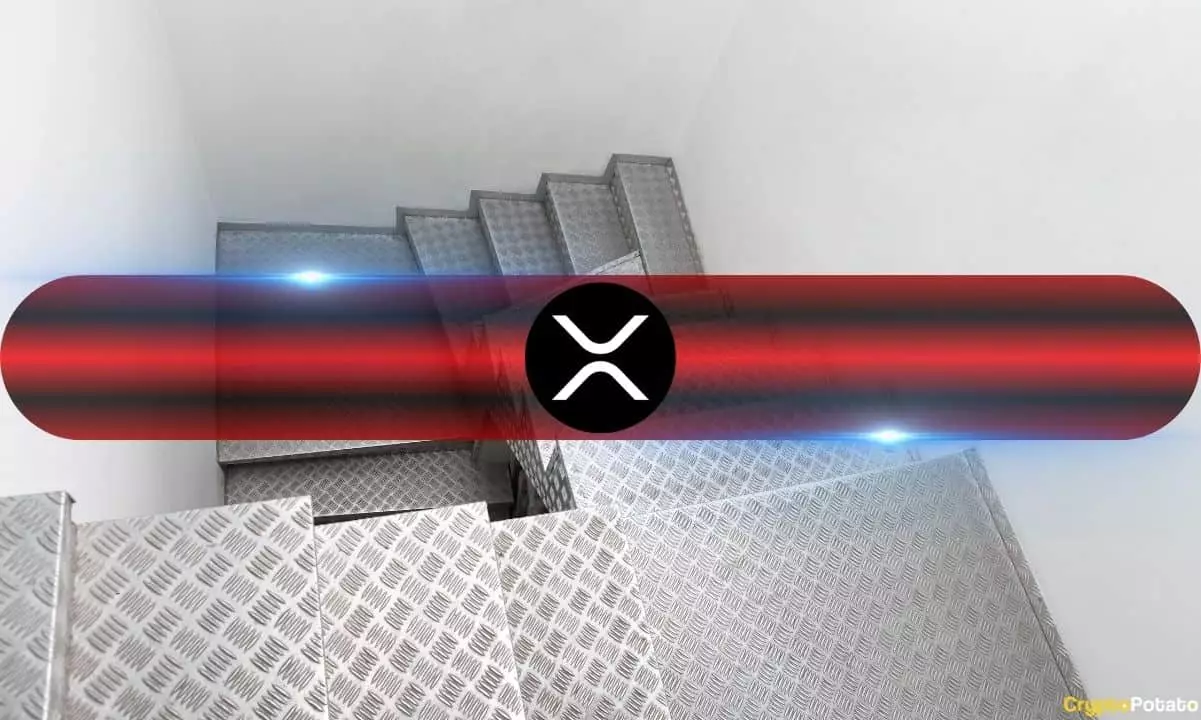In the fast-paced world of cryptocurrency, significant fluctuations are commonplace, and the performance of XRP has recently highlighted this volatility. On a Monday that marked the midway point of the trading week, several major cryptocurrencies—including Ethereum, Dogecoin, and Avalanche—faced declines, primarily due to a series of unfavorable hourly red candles. However, none experienced the downturn as pronounced as that of XRP, which saw a dramatic drop exceeding 7% by the time the New York stock market closed. This all occurred amidst a broader trend of diminishing trading volumes on major exchanges such as Binance, Kraken, and KuCoin, signaling potential trouble for XRP investors.
One of the most notable contributors to the slump in XRP’s price was the astonishing reduction in its daily trading volume. From a robust $37.5 billion at the start of December, the volume plummeted to just $2.5 billion by the end of the weekend, marking a staggering decline in investor engagement. This stark drop raises pertinent questions about market sentiment regarding XRP, especially considering its previously strong performance, which had seen it outshine many of its peers in percentage gains. In a market driven by speculation, such a rapid decline in trading activity often foreshadows a struggle for recovery in price.
Comparative Performance in Perspective
Reflecting on XRP’s performance over the year, one cannot ignore its impressive returns. From January 1 to December 25, XRP posted a remarkable 247% increase, significantly overshadowing Bitcoin, Ethereum, and Solana. This meteoric rise, especially following Donald Trump’s reelection, may have set unrealistic expectations for many traders. The recent drop in both price and trading volume could, therefore, be interpreted as a market correction—a process of reverting to more sustainable levels after a period of exuberance.
Interestingly, while XRP’s price suffered a notable decline, it managed to gain 10% in December—a feat achieved without sufficient trading volume support. This hints at underlying strength; if trading volume is revitalized, XRP’s price could very well surge. Analysts like Zach Rector believe XRP is currently “incredibly undervalued,” suggesting that the bear market conditions could present attractive entry points for savvy investors. Moreover, technical analysis tools such as Fibonacci levels and Elliott Wave patterns indicate a potential bullish reversal is on the horizon, provided XRP holds above crucial support levels.
As expectations grow, notable analysts are forecasting ambitious targets for XRP’s recovery, with projections suggesting a rise to $2.71 and even up to $4 within the near future. This enthusiasm is a testament to the unpredictable nature of cryptocurrency; while current conditions are challenging, the fundamental factors that previously propelled XRP to success remain relevant. Essentially, XRP stands at a crossroads, poised for either a significant rebound or further decline, influenced heavily by market sentiment and trading activity in the coming weeks.
In sum, market participants must navigate these volatile conditions with caution while keeping a close eye on both price movements and trading volumes. The future success of XRP will depend not only on resolving its current challenges but also on the broader trends within the cryptocurrency marketplace.

